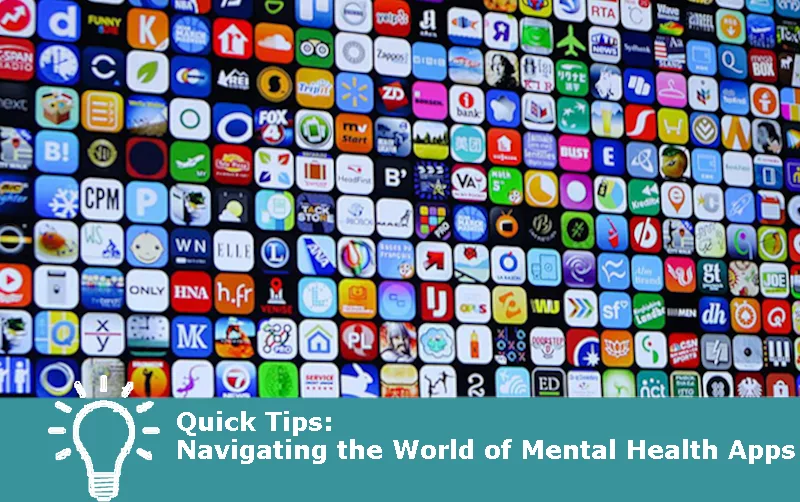Many mental health apps can be problematic “because most of the apps that are available are poorly designed and lack research support.” Dr. Torous discusses these apps in an article from The Carlat Psychiatry Report. Here is some of his advise:
Assessing Mental Health Apps:
Evidence-Based Apps:
Introducing these Apps:
To read the full article, subscribe to The Carlat Psychiatry Report here.
Assessing Mental Health Apps:
- Privacy. Determine if the app has a privacy policy. Many apps are not subjected to HIPAA law, and “Even FDA approval does not guarantee privacy protection”.
- Evidence. Use reputable research databases, such as PubMed, to learn about an app’s efficacy. See if the app is at least following “basic therapeutic principles or best practices”.
- Ease of use. “Apps have a very strong decay curve”. To keep patients from giving up on mental health apps, make sure that the app is not too complex or has annoying reminders.
Evidence-Based Apps:
- An active control is necessary. For depression apps, Dr. Torus found that “their effect size went down from medium to small when they went from a waitlist control to an active control like journaling or using an informational app (Firth J et al, World Psychiatry 2017;16:287–298)”.
- Effects of a digital placebo. The process of using a digital device can provide its own therapeutic effects, “regardless of the app’s content”.
- FDA-approval. Many apps, supported by good and credible studies, are not available on the app store. These “better-studied apps are coming out as prescription-only products that are approved by the FDA as “digital therapeutics”.
Introducing these Apps:
- Step counters. Are a great introductory step, if reasonable goals are set. For instance, you can say to your patient “Let’s set a target of being just a little bit more physically active and see if it improves your mood.”
- Augmenting the therapeutic alliance. Inform your patients that you will still be present to provide them with support. Dr. Torus states that “The technology is not running the show—it’s a tool, and we must set expectations and boundaries around how we’re going to use that tool.”.
- Using your patient's data. For instance, when using an app to track your patient's medication adherence, make sure you have a plan to encourage adherence after receiving the patient’s data. Additionally, you and your patient should agree on a specific goal and stopping date for when that goal has been achieved.
- Patient Motivation. Make sure that the app incorporates something that the patient is interested in or finds important. To promote beneficial results, “the patient must be motivated to use the app”.
To read the full article, subscribe to The Carlat Psychiatry Report here.


_-The-Breakthrough-Antipsychotic-That-Could-Change-Everything.webp?t=1729528747)



